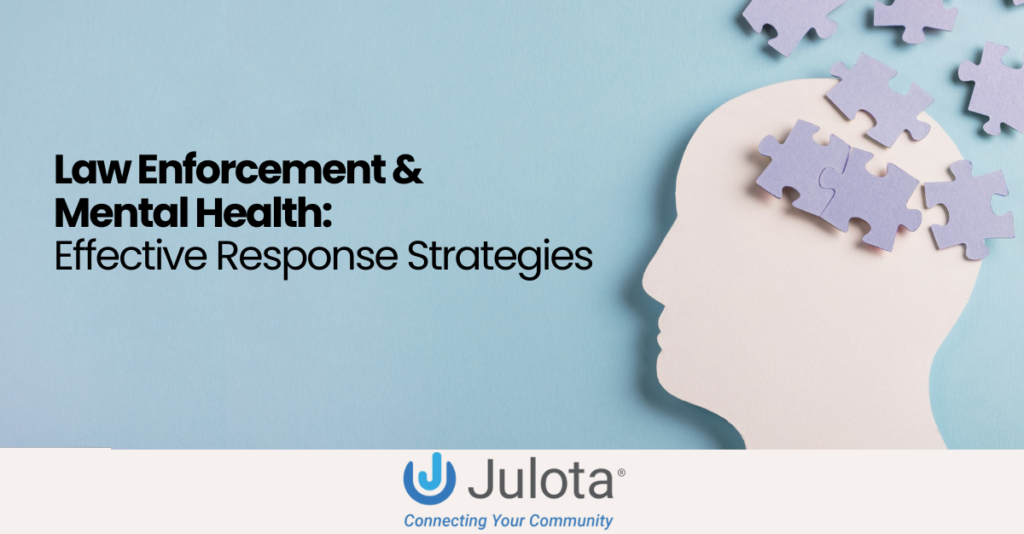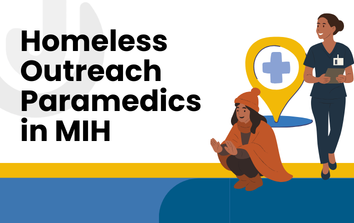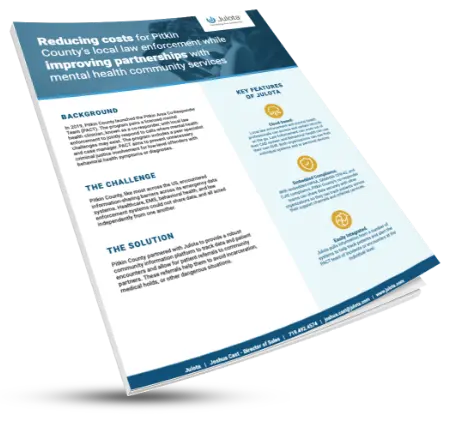How police and mental health services work together has become crucial to a modern community. When someone’s going through a mental health crisis, police officers are often the first to respond. This puts them in a unique position where they need their police training and a deep understanding of mental health to help people effectively. This article outlines effective tactics for law enforcement response to mental illness.
Effective community responses to mental illness involve Crisis Intervention Training (CIT) for police, which improves recognition and empathy, and the use of specialized mental health crisis teams to reduce arrests and enhance service connections. De-escalation techniques further aid in calming situations by promoting trust and non-threatening communication.

Understanding the Intersection of Law Enforcement and Mental Health
The Prevalence of Mental Health Issues in Society
Mental health challenges affect every part of our community, and they often lead to interactions with law enforcement. About 6 to 10 percent of all police encounters involve people with serious mental illnesses (SMI). This number shows how important it is to have good strategies for handling these situations.
Over the years, mental health care has changed dramatically. As mental health facilities have closed down, many people with mental illness have lost their support systems. This gap often means that crisis situations end up in the hands of police officers, highlighting how badly we need better mental health resources.
The Role of Law Enforcement in Mental Health Crises
Police officers have become the go-to responders for mental health emergencies. About 29 percent of people with serious mental illnesses in the U.S. had police involved in getting them mental health care. This means officers aren’t just enforcing laws anymore – they’re also becoming crisis counselors by default.
These situations are incredibly complex. Officers need to keep everyone safe while also helping someone in crisis, often without a mental health professional on hand. This challenge has sparked essential discussions about giving officers better training and resources for these critical moments.
Challenges Faced by Law Enforcement in Mental Health Crisis Situations
Many police departments, particularly smaller ones, struggle to provide the necessary crisis intervention training, leading to severe consequences when officers encounter individuals with mental health issues. Miscommunication and escalation are common, with statistics showing that one in four fatal encounters with police involves someone with serious mental illness. Moreover, systemic barriers and the stigma surrounding mental health further complicate these interactions, often leading to misidentified crisis calls and a lack of appropriate support for both officers and individuals in crisis.
Inadequate Training and Resources
One of the biggest problems in law enforcement today is the lack of mental health training. Even though officers are dealing with more mental health calls than ever, many police departments can’t provide enough crisis training. This is especially tough for smaller departments that don’t have much money for specialized programs.
When officers don’t have the proper training or support, the consequences can be severe. Research has found that people with untreated serious mental illness are 16 times more likely to die during encounters with law enforcement compared to other civilians.
Potential for Miscommunication or Escalation
The risk of things going wrong is exceptionally high during mental health crises. At least 1 in 4 fatal encounters with law enforcement involves someone with serious mental illness. These numbers show the importance of good de-escalation skills and crisis training.
What’s even more concerning is that between 2019 and 2021, mental health crisis calls to 911 led to at least 178 fatal shootings by officers – in situations where no one else was in danger. This clearly shows that we need better ways to handle these situations.
Systemic Barriers and Stigmatization
The problems go deeper than just individual encounters. While only 2.1% of officially labeled 911 calls are marked as mental health-related, that number jumps to 19% when you include all behavioral health needs. This difference shows how often mental health crises aren’t correctly identified in emergency response systems.
The stigma around mental illness makes everything more complicated. People in crisis might not want to ask for help or tell the police about their mental health conditions, which can lead to dangerous misunderstandings. This stigma also affects how policies are made and resources are distributed, creating a cycle where both police and people in crisis don’t get the support they need.
Effective Strategies for Responding to Mental Illness in the Community
Crisis Intervention Training (CIT) for Officers
Crisis Intervention Training has changed how police handle mental health emergencies for the better. These programs teach officers how to spot signs of mental illness, communicate effectively, and respond with empathy. It’s about bridging the gap between traditional police work and mental health care to get better results for everyone involved.
Deployment of Mental Health Crisis Teams
Having specialized mental health crisis teams has revolutionized how we handle emergencies. Studies show that when mental health professionals work alongside police officers, they’re better at calming situations down, connecting people with services, reducing arrests, and avoiding unnecessary hospital visits. These teams focus on treatment first rather than just law enforcement.
Utilizing De-escalation Techniques
Good de-escalation techniques are crucial for handling crisis situations. This means giving people space, building trust, and communicating calmly to reduce tension. Officers learn to be patient and understand that taking more time is sometimes their best tool.
The key parts of de-escalation include listening to people, keeping a safe distance, and using body language that doesn’t seem threatening. When people in crisis feel heard and respected, they’re much less likely to become confrontational. Combined with proper training, these approaches help achieve peaceful outcomes in challenging situations.
Collaborative Approaches and Programs
Police-Mental Health Collaborations (PMHC)
Working together has become essential in addressing mental health crises in our justice system. With over a million arrests of people with mental illnesses happening each year in the U.S., these partnerships between police, mental health providers, and community organizations are making a real difference.
This team approach helps reduce unnecessary arrests and hospital stays. It’s imperative when you consider that people with serious mental illnesses make up 17 percent of people in jails and prisons, even though they’re only 5-7 percent of the general population.
Success Stories from Established Programs
We’re seeing great results from programs like CAHOOTS in Eugene, Oregon, where mental health professionals handle many crisis calls without needing police backup. These programs aren’t just reducing arrests and emergency room visits. They are saving money and improving relationships between police and communities.
The Impact of Legislative Support and Policy Changes
Support from lawmakers has been key to creating better mental health crisis response systems. When policies prioritize funding for mental health and encourage collaboration, communities can develop more comprehensive ways to help people in crisis. Recent laws have focused on creating steady funding for these programs and ensuring we collect data to show what works.
Future Directions and Resources
Innovative Technologies and Tools for Crisis Management
Technology is changing how we handle mental health crises. New tools like mobile apps for mental health assessments and platforms for sharing information between agencies are making responses more effective. Officers can now quickly access important information about mental health histories and crisis plans, helping them make better decisions.
Additional Training and Educational Opportunities
Training keeps evolving to meet new challenges. Officers can now practice de-escalation in virtual reality simulations, and specialized certification programs combine classroom learning with hands-on experience. Working closely with mental health professionals helps officers develop knowledge and practical skills.
Resources for Continued Learning and Development
There are many ways for officers to keep learning and improving their skills. Online courses cover everything from essential mental health awareness to advanced crisis intervention. Professional networks and regular training events help officers stay current with the latest approaches and learn from each other’s experiences. Local mental health organizations often provide extra training and support to help officers handle complex situations effectively.



